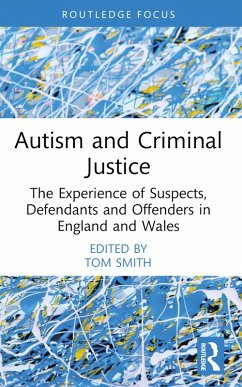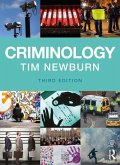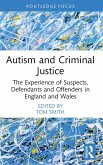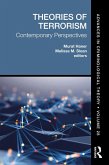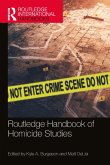This work summarises current knowledge regarding autistic suspects, defendants and offenders in the English and Welsh criminal justice system. It examines the interaction between each stage of the criminal justice process and autistic individuals accused or convicted of crime, considering problems, strengths and options for improving the system.
Dieser Download kann aus rechtlichen Gründen nur mit Rechnungsadresse in A, B, BG, CY, CZ, D, DK, EW, E, FIN, F, GR, HR, H, IRL, I, LT, L, LR, M, NL, PL, P, R, S, SLO, SK ausgeliefert werden.

